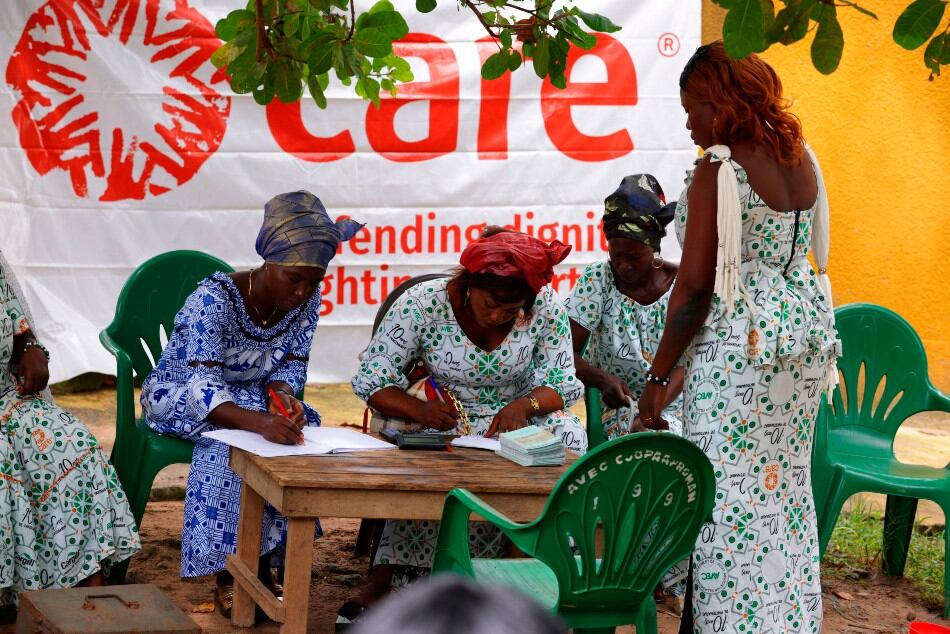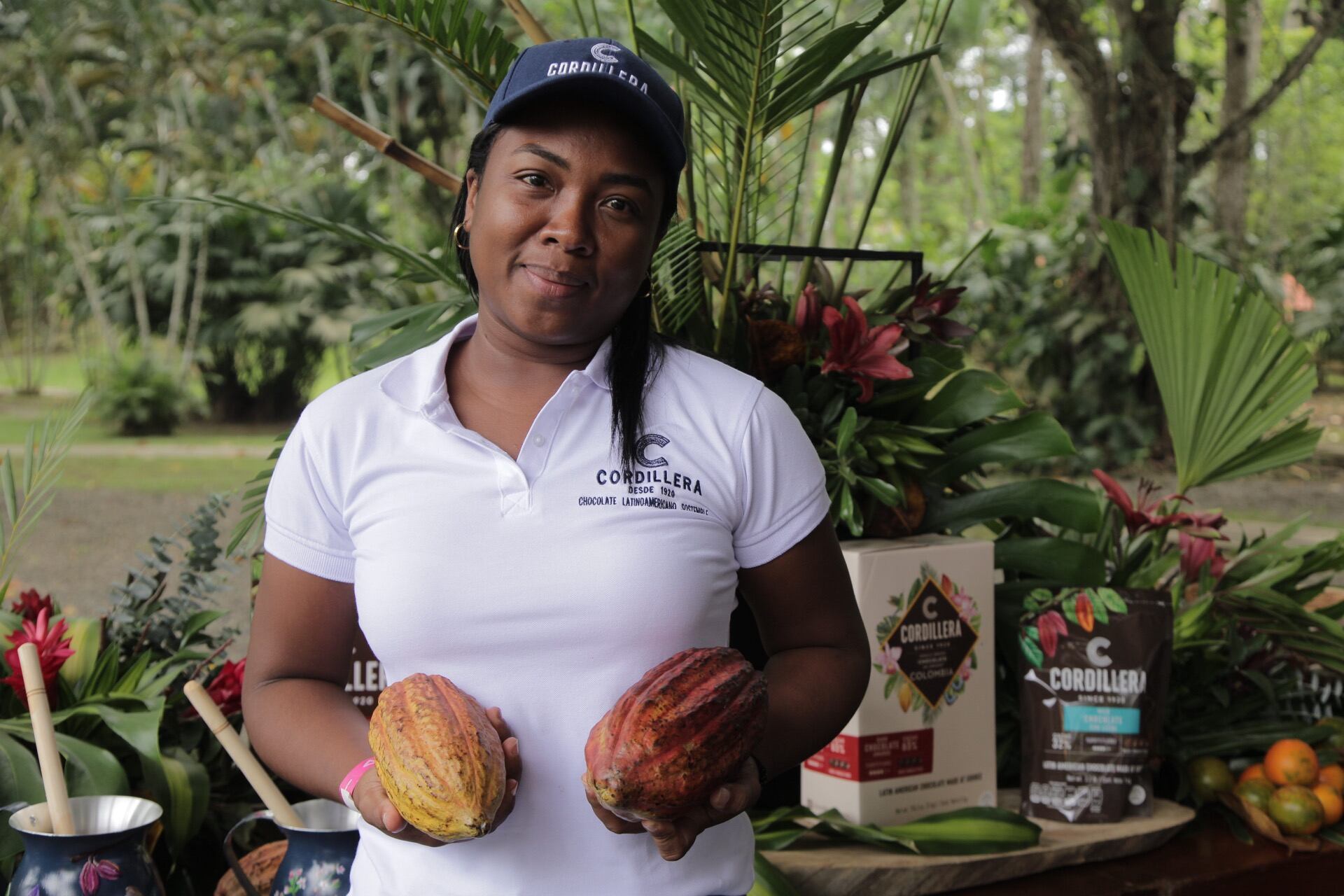These were some of the topics raised in the latest online session organised by the Women in Cocoa & Chocolate Network (WINCC), which invited representatives of Chocolate Cordillera, a premium Colombian sustainable brand that has launched a programme for the long-term transformation for women cocoa producers.
The session began with Jack Steijn, Director of Equipoise, organisers of the annual Chocoa Sustainable Conference in Amsterdam. He pointed out that in over 45 pages of EU legislation text, the word ‘women’ is only mentioned once. Although he said that doesn’t mean the European Union overlooks women, it was essential to understand that cocoa is a small market. When designing the new legislation, Brussels considered other commodities such as palm oil and different sectors like cattle.
He said everyone on, or joining the discussion, is related to cocoa or thinks cocoa is very important and gender equity should be part of any sustainability legislation. The new deforestation rules will apply to all products derived from cocoa when they come into force at the end of 2024.
“Companies have to prove that if you are importing cocoa or cocoa products into the European Union, it has not come from a deforested plot of land, and the deforestation cutoff date is December 31, 2020.
“Companies also have to prove that they are in compliance with national legislation and they have to have full traceability in place and risk assessments of any in conformities on the area where cocoa is sourced … and companies are required to have to a mitigation plan available, and it has to be also audited.”
Steijn said companies can be fined up to 4% of their net turnover if they do not comply with the law. And as a manager of the firm, they can even end up in jail.
These women are fundamental for our strategy development, specifically for cooperatives and projects based on an inclusive business -- Juan Fernando Valenzuela, Director of Purchasing and Agricultural Development, Chocolate Cordillera
So, the stakes are high for chocolate and cocoa companies. Still, panel host Anna Laven, a social scientist at KIT Royal Tropical Institute in The Netherlands, emphasised to listeners that we need to watch for women's vulnerability and see agenda equality and women empowerment as part of the solution. This includes helping to prevent the violation of human rights and also helping to stimulate higher incomes and agroforestry initiatives for women agricultural workers.
Recently, Chocolate Cordillera (the B2B business of Colombia’s Compañía Nacional de Chocolates) launched a hugely ambitious programme to generate a long-term transformation for women cocoa producers, enabling a more just, thriving, equitable and inclusive value chain.
'Women who transcend'
Alejandra Sarasty, the company’s Chief Global B2B Officer, said ‘ATENEA – Women Who Transcend’ is a sustainability initiative with a ‘higher purpose,’ developing the capacities of rural cocoa-growing women to improve their quality of life and that of their families and communities while maintaining Colombia’s unique ecosystem.
“Our true belief and conviction is that business should be driven with a sustainable vision. Sustainability is not a pillar of our business strategy. It is embedded in every single one of the strategies that we do in our business,” she said.
Juan Fernando Valenzuela, Director of Purchasing and Agricultural Development at Chocolate Cordillera, said: “We have a strategy that clarifies roles and responsibilities. The woman is our baseline. We know the meaning for the families, these women working together, that they work on the farm and in the landscape of our country. These women are fundamental for our strategy development, specifically for cooperatives and projects based on an inclusive business.
He said the company is on track to reach its objectives by 2030 by sourcing 100% of commodities in the value chain and preserving Colombia’s rich biodiversity. It works with cooperatives and governments, and human rights compliance covers Cordillera’s supply chains.
Cacao for Peace
Valenzuela also noted the conservation and regeneration of forests in Colombia include the Cacao for Peace initiative that replaces narcotic plants with cacao trees.
He said Cordillera has been engaging with rural communities for the past 65 years, helping them manage the benefits of upfront payments for their crops. During the conflict with armed terrorists and drug gangs, up to 98% of the rural population was displaced. But throughout all the troubles, women have consistently shown tremendous resilience, and now they have been provided with a ‘higher purpose’ through the ATENEA programme.
“The commitment to the small farmers, the commitment to women, for us, is very important. Remember, in Colombia, the conflict that we had impacted the families and the women were fundamental to the family group and the conservation and the restitution of land, so we have to work together with them,” he said.
At present, Chocolate Cordillera’s main markets are South and North America, but as Sarasty said: “That doesn't mean that we're not looking into Europe, particularly understanding that European countries and European markets are concerned with sustainability, not just deforestation-free cocoa but also important sustainability issues like Fairtrade and child labour.
“European markets understand that value, and they would understand the value proposition of a brand like ours, which advocates sustainability.”
Valenzuela said the company is ready for a compliance issue with the new EU deforestation regulations. “ATENEA is our baseline,” he said, “because working directly with the women and the cooperatives and associations, we will reach the due diligence requirements.
“We have traceability programmes that we implemented one year ago directly with the cooperatives and the small-holder farmers. We have pilots, and right now, we are implementing them with different cooperatives and associations here in Colombia with the polygon mapping for traceability. So when the cocoa beans we reach in our factory, we can prove they are deforestation-free.”
Natalie Quintero Zuluaga, Chocolate Cordillera’s B2B Global Marketing Director, rounded off the session, saying that at the corporate level within the Nutresa Group, there are structures in place for gender equality and female advancement, “women in Colombia are agents of change.” Cordillera is not only talking ... but walking the talk at all levels.”
New requirements for market access into the European Union - Three pieces of legislation
Regulation 2023/1115 on deforestation
• Companies will be liable for deforestation in their supply chains
• In force since June 2023, applicable from the end of 2024
• Applicable to in scope sectors soy, beef, palm oil, wood, cocoa and coffee
• Cut off date 2021 for deforestation
• Not only deforestation, also compliance with national legislation
• Traceability, risk assessment and contingency plans are needed
• Fines up to 10% of turnover in EU, management liable in person
• Everyone can denounce incompliances
Corporate Sustainability Due Diligence Directive (COM 2022 71)
• Companies will be liable for human rights infringements and environmental issues in their supply chains
• Not voted by council yet
• Threshold for company size
• Applicable to all sectors
Forced Labour Regulation (COM 2022 453)
• Companies will be liable for forced labour in their supply chains
• Not voted by Parliament and Council yet
• Applicable to all sectors
Source: Chocoa



